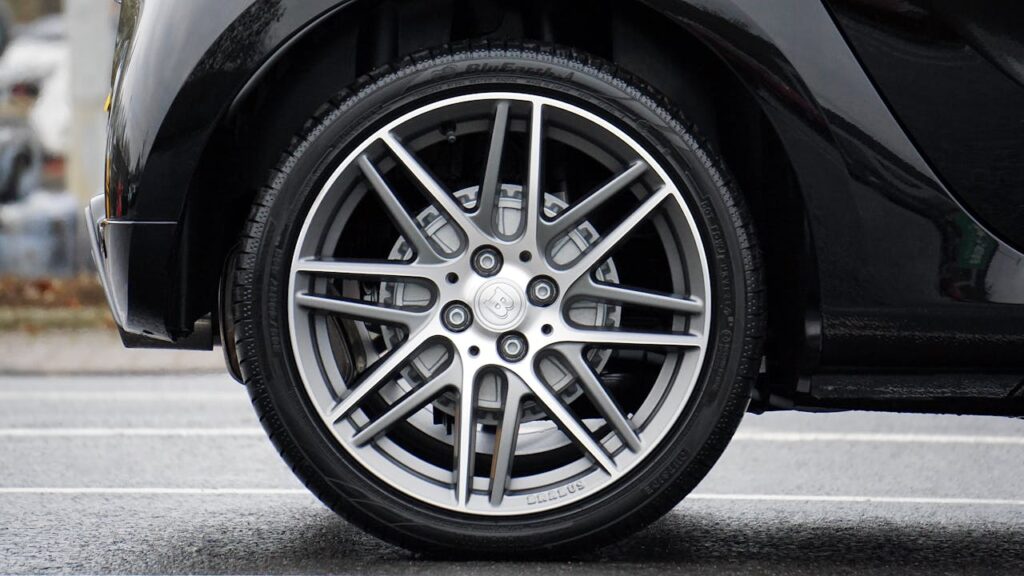Your tires play a crucial role in your vehicle’s safety, fuel efficiency, and overall performance. While they’re built to withstand thousands of miles of use, neglecting them can lead to costly replacements and even dangerous situations on the road. Protecting your tires doesn’t require expensive tools or excessive effort—just a few regular habits to keep them in top condition.
In this guide, we’ll explore five easy yet effective ways to care for your tires throughout the year, no matter the season or driving conditions.
1. Check Tire Pressure Regularly
Maintaining the correct tire pressure is one of the simplest and most effective ways to extend the life of your tires. Over- or under-inflated tires can lead to uneven wear, poor handling, and reduced fuel efficiency. Even worse, driving on improperly inflated tires increases the risk of a blowout.
Tire pressure fluctuates with temperature changes—decreasing in colder weather and increasing in hotter climates. Make it a habit to check your tire pressure at least once a month and before long trips. Refer to your vehicle’s manual or the sticker inside the driver’s door to find the recommended pressure level. Many gas stations offer free or low-cost air pumps, or you can purchase a portable tire pressure gauge for convenience.
2. Monitor Tread Depth
The tread on your tires is essential for maintaining traction on the road, particularly in wet or slippery conditions. Over time, the tread wears down, making it harder for your tires to grip the road. Worn-out tires are not only dangerous but also illegal in many areas.
A quick way to check tread depth is by using the penny test. Insert a penny into the tire’s tread with Lincoln’s head facing down. If the top of his head is visible, the tread is too shallow, and it’s time to replace your tires. Regularly inspecting the tread ensures you’ll always have the grip you need for safe driving.
3. Rotate Tires Periodically
Tires wear unevenly depending on their position on your car. For instance, front tires often wear faster due to the additional weight of the engine and steering functions. To prevent uneven wear, it’s important to rotate your tires regularly—typically every 5,000 to 7,000 miles, or as recommended by your vehicle’s manufacturer.
Rotating your tires not only extends their lifespan but also improves your car’s handling and ride quality. Many auto repair shops include tire rotation as part of routine maintenance services, making it easy to stay on schedule.
4. Inspect for Damage
Everyday driving can expose your tires to potential hazards, from nails and sharp objects to cracks and bulges caused by road debris or potholes. Left unchecked, small issues can turn into big problems, such as a sudden flat tire or blowout.
Make it a habit to visually inspect your tires every few weeks. Look for embedded objects, cuts, or any unusual bulges. If you notice anything concerning, have a professional inspect your tires to determine if repairs are possible or if a replacement is necessary. Addressing damage early can save you from inconvenient breakdowns and ensure your safety on the road.
5. Protect Tires Against Weather Extremes
Extreme weather can take a toll on your tires. In winter, freezing temperatures and icy roads can make tires brittle and reduce their effectiveness. Consider investing in winter tires if you live in an area with heavy snowfall—they’re designed to perform better in cold conditions and improve safety.
In summer, prolonged exposure to heat and sunlight can cause the rubber to deteriorate. Parking in shaded areas or using tire covers can help prevent this damage. Keeping your tires clean by washing off road salt, dirt, and debris will also help preserve their condition year-round.
Conclusion
Caring for your tires doesn’t have to be complicated. By checking tire pressure, monitoring tread depth, rotating tires, inspecting for damage, and taking precautions against extreme weather, you can protect your investment and ensure a smoother, safer driving experience.
Regular maintenance not only extends the life of your tires but also saves you money in the long run. Start implementing these simple habits today, and you’ll enjoy better performance and peace of mind on every drive.


